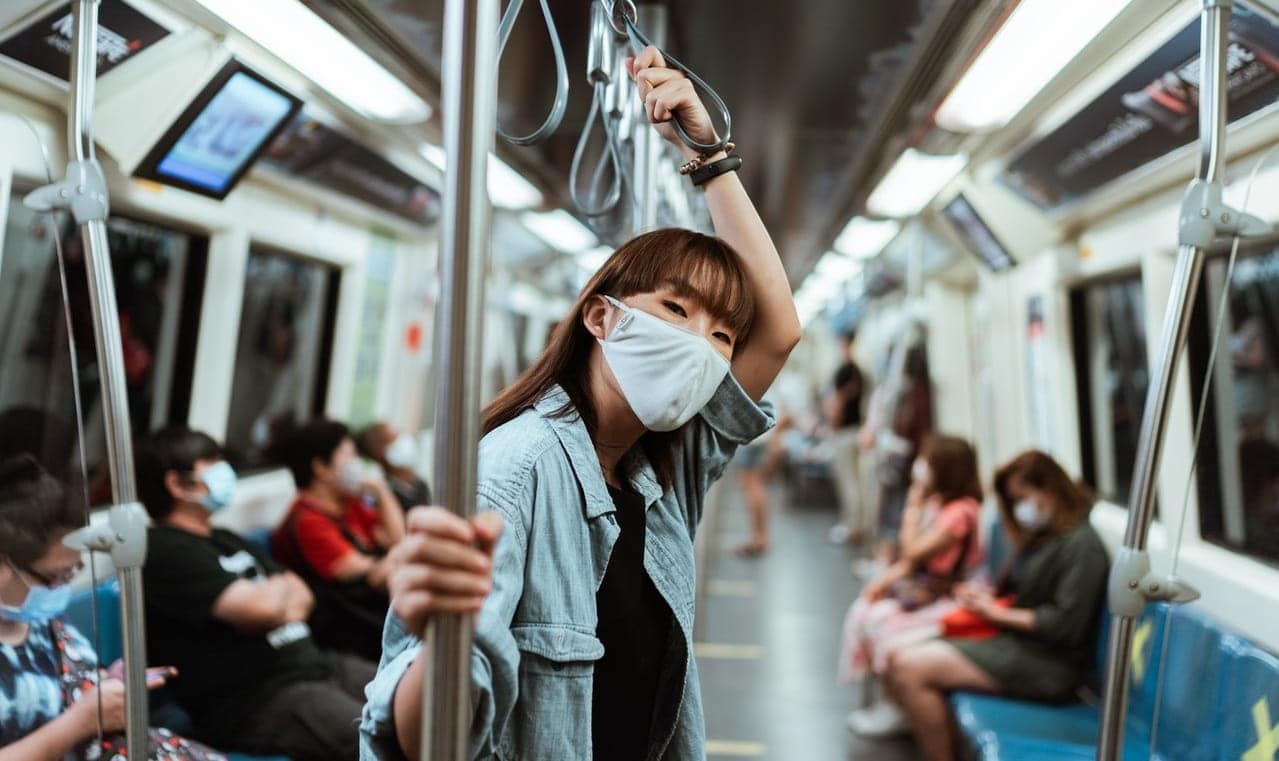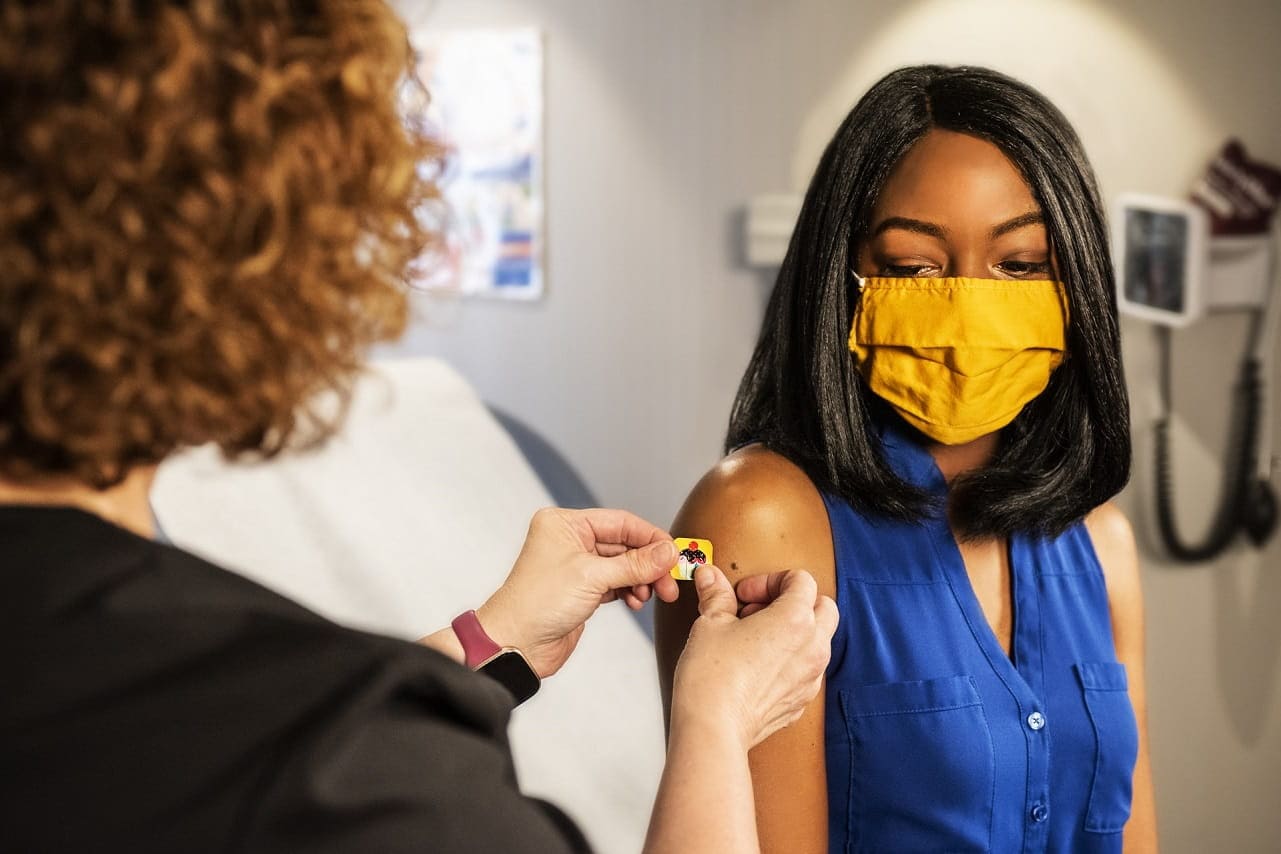
People are asking about your COVID vaccination, but is it appropriate?
A friend found herself in a Zoom discussion the other day that she found uncomfortable. A service group, some were chatting while waiting for the rest to sign in, when person A asked person B, “So, have you gotten your COVID shot yet?” It didn’t stop there, as person A also asked about person C, who was neither present nor related to either of them.
My friend was uncomfortable, because she felt the subject about getting a vaccine to be personal medical information and private. She felt it wasn’t hers or anyone else’s business and had no bearing on the meeting at all.
After the meeting, the situation continued to bother her. So she posed a question to a different group of friends of which I’m a member. She wanted to know if she was overreacting, or was person A out of line?
Our answers were varied and interesting, often bringing up more questions.
One of the main questions that arose was, Why? Why was the question asked?
- For those with major health issues, the question is a serious one, and would determine whether they could attend a family or other social gathering, or even an appointment. It’s also important to know what other precautions are in place.
- For others, it’s as innocuous right now as talking about the weather. One shared that his office is eager to get back to in-person work, and the vaccination rate is a big part of that equation. So, it often comes up in discussion, but he suspects that the interest will die down.
- Some people may be looking for a fight, wanting to take the discussion into politics and push their personal agenda, however they may see it.
- And some may be just plain nosey.
Since none of us have experienced a pandemic like this before, there’s a lot of uncharted territory. And we’re still trying to figure out social norms in person, on Zoom, and with social media. But let’s delve into it a bit deeper.
What the vaccine does
It does help reduce the spread of COVID-19, and it does help lessen the symptoms, and it does reduce the hospitalization and death rates. Some new studies indicate it may help reduce the symptoms those with long-term effects. The efficacy rates of those vaccines currently available appear to be much higher than the seasonal flu shots we’re accustomed to. And since you can be re-infected by COVID-19, even if you have had it before, the vaccination makes sense.
But you can still get COVID-19 after getting vaccinated, especially if the vaccine hasn’t had time to build up your immunity. The vaccine isn’t a cure-all. The understandable exuberance of having a vaccine available needs to be tempered with some common sense. We’re a long way from herd immunity. Masks, distancing, and hand washing aren’t disappearing anytime soon.
Availability
Access has been uneven throughout our country and the world in general. In Texas, for example, you have the large cities with mass inoculation sites, but not everyone has a way to get there. There are also rural areas where cold storage requirement of the Pfizer and Moderna options exceed the transportation times to get the medicine to a clinic, let alone into patients. For them, options like the Johnson & Johnson are lifesavers, and some of those small communities are now near full compliance. Certainly there are additional issues with how states and local governments have organized and carried out their plans. In the West Texas area alone, one dose vaccination rates by county as of 24 March 2021 range from 69% to 16%. (This spreadsheet updates periodically.) It’s not an even playing field.
Trends
One of the trends some areas are now seeing is the decline in demand for the COVID vaccine. Some of that decline may be that those who want it have done so. Others may think that, since numbers are down, they don’t need it anymore. Some may be against it for ideological or religious reasons. And let’s not forget those who can’t get it for health reasons that are none of our business. But some say we are in for another wave of infections soon as tolerance for masks and social distancing decreases.

Our Conclusions
While I personally think everyone who can get vaccinated should, I try to refrain from judgement if they don’t. Heck, I can’t even get my own husband to get vaccinated for COVID or flu! (He hates shots. Period. End of discussion.) I do find people’s reasons fascinating for or against getting a shot. But I’m nosey that way. I like figuring out how people think and why. That said, our group consensus was measured.
- Those with medical issues that put them at risk have every right to ask the question and others related to preserving their health when situations like family get togethers and dinners with friends arise. In the absence of answers, assume that, like strangers, they aren’t vaccinated or tested and proceed accordingly. Be polite and reserve judgment.
- For the rest of us, it’s none of our business. Really. A lot of people think they have been deputized as Vaccine Police (on one side or the other). In the U.S. at least, we don’t have those. Nor do we need them.
- If you want to know where or how to get a shot, ask that question.
- If you are trying to decide whether or not to get one, be prepared for a lot of vitriol and misinformation on both sides. Checking scientific and medical websites (such as those attached to universities) are a better bet.
- Otherwise, as above, assume people haven’t been vaccinated and act accordingly. The why/why not is none of your business. Remember to be polite.
- When it comes up in a discussion and the topic bothers you or another participant, ignore it if it seems innocuous or change the subject, especially if the question or answer seems aggressive. Again, no Vaccine Police.
- You do not have to answer the question if you don’t want to, regardless of what the answer might be.
- I’d smile and say something like, “I consider that personal medical information and prefer not to discuss it.” Unless your employer or another country requests proof — legalities aren’t being addressed here — you should feel free to answer or not as you wish.
- Do be prepared for blowback from someone with an agenda or from the busybodies who have always been with us and think everyone’s business is theirs. You know who I’m talking about. Be polite but firm. I could be wrong, but this is a case where I believe walking away or clicking the Leave Meeting button is appropriate if that person persists.
- Continue to mask, wash hands and social distance. Regardless of your opinion on the vaccines, we know these measures are effective. In fact, studies are showing a large decrease in influenza cases this last season, which may be attributed to the COVID-19 risk mitigation. Masking during flu season has been common in many parts of Asia for several years. I wouldn’t be at all surprised to see it become more common elsewhere, including the United States.
I like how our friend Al put it:
I think common sense is a good approach. Eventually, if I wouldn’t ask if they’ve had the HPV vaccine, then I probably won’t ask if they’ve had a Covid-19 vaccine. In early days when we are nowhere near immunity, new strains are rampant, and nobody in my house is safe, I probably won’t ask because I wouldn’t be unmasked around anyone anyway. These next several months will be awkward, though.
Finally, we are all humans, slogging out way through an uncharted mud bog. Tired, stinky and slimy, we need to give one another room to vent as well as compassion and encouragement to keep going. We will get to the other side.
Grace, Peace and Hugs!
Great post. I will just add that I think some of the reasons for the question is enthusiasm – people are excited the vaccines are available, and people are sharing their stories of how they got theirs, and the next natural question is “what about you?” That will die down over time, but for now I think this helps get people who are on the fence to be more positive about getting a vaccine.
But just like we don’t ask people if they got their flu shots, eventually this will die out as well. But personally I am glad people are so enthusiastic about it (since I’m a pro-vaxxer). But no one should be made to feel uncomfortable for making different choices. My neighbor in her 80s hasn’t gotten one yet, which surprised me. But on the other hand she never goes anywhere (she can’t drive anymore) and when she does (someone drives her) she wears a mask. She did say she just might have to get it sooner or later, but it’s her decision. I asked her expecting a yes answer, but didn’t press it and won’t ask her again.
Update – since I last tried to post this- the neighbor IS planning to get a vaccine! I gave her the vaccinefinder.org website to help her find an appt, and told her I’d be happy to take her.
That’s great that you offered to take her.